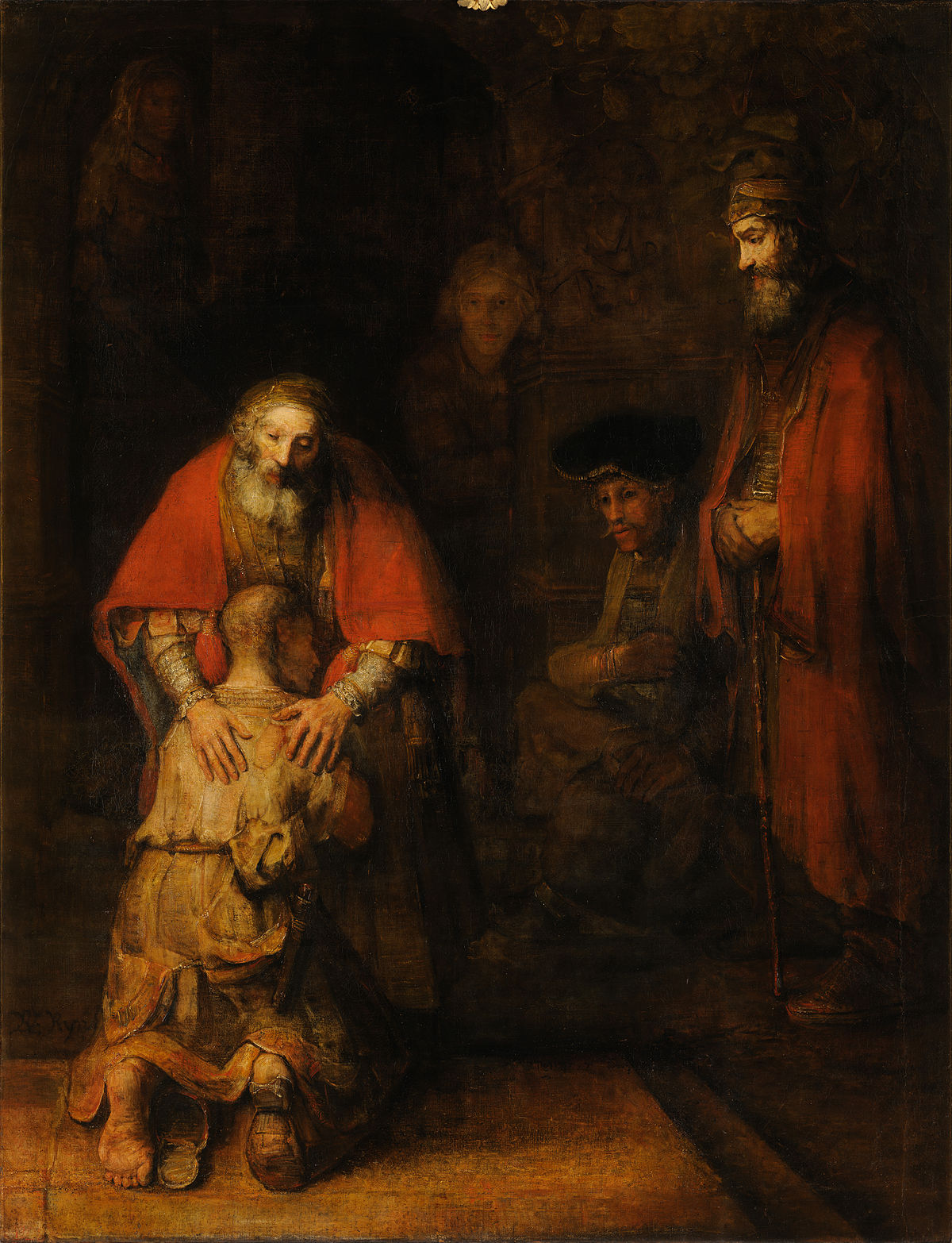This week we welcome back Dr. Russell Jeung to the blog for the third of a six-part series on Asian America. Russell Jeung is Professor of Asian American Studies at San Francisco State University and co-Founder of Stop AAPI Hate. In 2021, he was named one of the TIME 100 most influential people in the world. See the full series here.

“The Lord has done this for me,” she said. “In these days he has shown his favor and taken away my disgrace among the people.” --Luke 1:25
I buried and hid my head in my jacket, weeping in heated shame. The rest of my family ignored me at the busy restaurant, acting as if nothing had happened.
Even though I was seventeen years old at the time, I couldn’t help myself nor control my reaction. My aunt from the East Coast was in town, and my family was hosting her for a family reunion. When I had arrived late, my father yelled and tore into me for keeping the family waiting and being discourteous to my aunt.
Stunned, I immediately felt the harsh anger of my father. While regularly good-humored, he occasionally erupted in specific situations such as these—hosting or vacationing, frustrating miscommunication, or lateness that signals disrespect.
No one should have to face such explosive berating, but I was duly repentant. I knew I should think of others’ first, and be considerate of their time. More so, I shaken by and remorseful over my father’s disapproval. I loved my father, and wanted to please him.
The shame I felt –like any other emotion–was valid and legitimate I care more about how others see me than how I even see myself.
While other Americans might disregard more what others think, Asian Americans and others from shame-based cultures might recognize my response. The shame made me want to run and hide, just as Adam and Eve did when their nakedness was exposed. Each semester, I ask my Asian American Studies students what’s worse when caught for cheating: the guilt over knowing they’ve done something wrong or the shame that their parents are angry at them? Overwhelmingly, they agree that the shame is worse.
Similarly, most cultures in the Bible were shame-based. Indeed, Scriptures name and address shame three times more it does guilt. How God saves us from our shame and how we receive this gift is another gift to the Asian American church that we can share.
In the Parable of the Prodigal Son, we see shame dynamics at play. The prodigal son acts shamelessly in disrespecting his father, spending his inheritance in excessive display, and wallowing with pigs. He eventually returns, but recognizes he is “no longer worthy” to be called a son. Although the older son is obedient, he too is entrapped by merit-based performance and shame. Resentful, he explodes in anger and stubbornly remains petulant when he isn’t recognized for his hard work and obedience.
The father in this story, though, removes the shame of his sons by unconditionally offering the gifts of favor and blessing.
When the prodigal son returns, the father erases the shame by restoring the blessing that their relationship confers. He authorizes his servants to dress him with a robe, just as Joseph had received from Jacob, symbolizing the father’s favor. The son receives a ring indicating he has the father’s power and authority over household affairs. And he is shorn with sandals that reflect his family status within the home, as compared to the servants who remained bare-footed. (This point defies the general Asian American experience, as no self-respecting Asian would wear shoes in the house).
Not only does God the Father forgive us to remove our guilt, but he also favors us to erase our shame and restore our relationship. This divine blessing is the way, truth and life for this Asian American’s salvation.
As a teen, I longed to please my parents and gain their approval. As social animals, people seem clearly built to view ourselves as others do, and want the esteem of others. Just look at how much we feel reinforced by the likes and hearts of others on social media. People-pleasing may go to the wrong extreme, but shamelessness—the disregard of how others perceive and relate to you—is just as much a sign of brokenness. Wholeness, including my own perception of myself, involves right relations with God and others.
Years later at my wedding, I basked in my father’s approval and joy. Of course, he was overwhelmed that anyone—let alone someone as great as Joan my bride—finally agreed to marry his son. Yet at this large gathering with food and family present, he could also beam over the favor of being in relationship with family and honored, celebrating with his daughters and sons.
That’s why I love the Parable of the Talents as much as I love the Parable of the Prodigal Son. Because the servant employed his time and resources faithfully, the master ultimately approved, “Well done, good and faithful servant. You have been faithful over a little; I will set you over much. Enter into the joy of your master.”
At the end of my time here on earth, I want to be fully spent and hear, “Well done.” I’d be overcome to be recognized as “good and faithful.” Most of all, I yearn to be in God’s presence, welcomed to enter into His joy.
Such is the gift of blessing and favor—the deeply-felt knowledge that God see us, and is well-pleased with joy.












